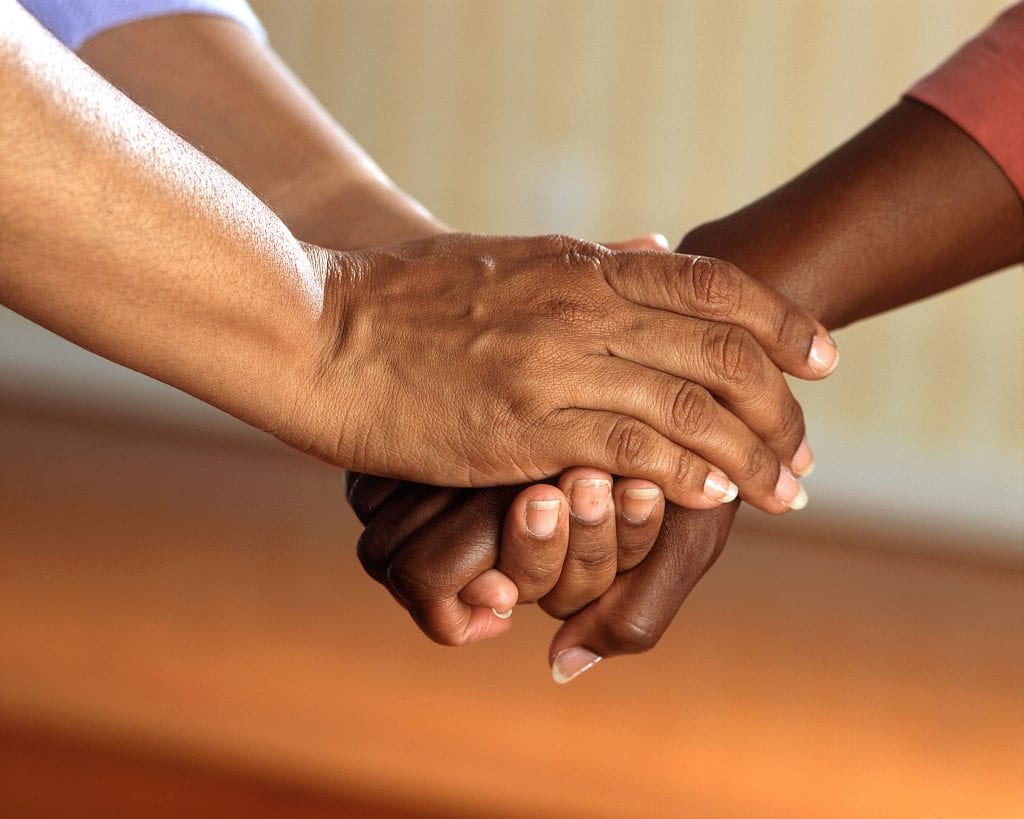I often joke that my love language is meme. I am known in quite a few group chats to be something of a quickdraw when it comes to posting the right viral joke at the right time.
I’m a high school history teacher. As it has gone for many years in my profession, my students catch on to my niche quickly. They’re littered throughout every PowerPoint and even have made their way onto an end of term exam or two. I love when I see my inbox start to fill with “saw this on Instagram and thought you’d like it was funny,” or “this is exactly what you said in class lol.” By November, there’s an unspoken competition between two or three of them to find a historical meme I haven’t seen.

If I have learned anything from being a history teacher, it’s these two constants – there are bad things in the world and there are brave people who will stand up to them. Bad things come in all shapes and sizes, and so do brave people. Brave people can be wearing a camouflage uniform, carrying a hand-made sign, or wearing the clothes they dressed for the day that morning. I think that we’re very good at honoring brave people, but sometimes we fail to recognize the people who love those brave people properly. They also suffer, sacrifice, and carry on, often in a hailstorm of callous judgement.
What I am coming to learn as a young adult and mother is that some things can’t and shouldn’t be compressed into a nonchalant joke. Although one of our most important freedoms is the freedom of expression, that doesn’t give us license to be void of humanity. While men and women fight to protect that right, we would do well to remember to treat it with equal respect. I would never say someone should not use their beloved freedom of speech, but I would say that we should all (including myself) reflect on the situations before we use it. Facebook, Instagram, and the like are echo chambers where we can hear ourselves and the few other “likes” laugh for a minute, but we don’t see the repercussions of our imagery or words on the expressions of our, by definition, friends. For instance, among my Facebook friends alone …
There is a father whose sons are bravely serving on the other side of the world.
There is a young woman whose family came to this country as refugees from unimaginable violence and oppression.
There is a friend of a fallen soldier who left this world too soon.
There is a first-generation American citizen born to parents who risked their lives so that she may live a better life.
There is a veteran who prays for his brother infantrymen every day.
There is a family who has a difficult time getting in touch with their sailor.
There is a friend whose grandmother can never go back to her homeland no matter how much she dreams of doing so.
There is a former triage nurse who held a man’s hand as he took his last breath in the middle of the desert.
There is a priest who said Mass under a camouflage tent.
There is a son who has his father’s American flag folded up and display atop his young son’s bed.
Memes are indicative of our history; maybe that’s why I love them so much. We went from reading novels to magazines to 160 characters. We went from traveling to the big city miles away for a graduation dress to clicking a button, waiting two days, and unpacking it from a cardboard box. We went from synthesizes scores of information in essays to boiling down complex content into ten words and a picture. While some may be critical of these trends the most advanced technology and communication becomes, I think you can have value and depth with succinctness. Shakespeare once wrote, “brevity is the soul of wit.” And while wit has a soul, so does compassion. Like any other form of communication since Gutenberg, we have to weigh the act of delivering information against the cost of our communities receiving the information.
On behalf on a mother teaching her young sons the value of respect in a selfish world, take a moment to think about the political meme infused with complex global issues of the moment before you post it. And I don’t mean don’t speak – speak! But speak thoughtfully — think about your personal message of the moment and compose it without sarcasm, without cynicism, without diminishing the most serious of tolls, and perhaps without limitations of 160 words.
It may seem like the ultimate hypocritical way to end, but the last thing I say will certainly be under 160 characters – God Bless America.


















Hey cousin, you got quoted in the New York Times. Jere Longman mentioned you and KVPI.